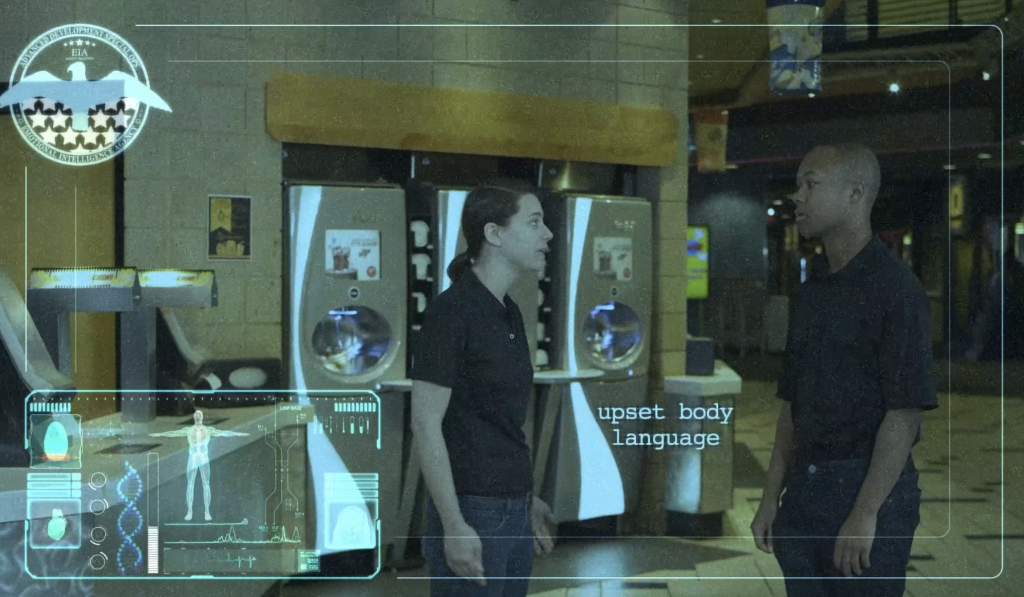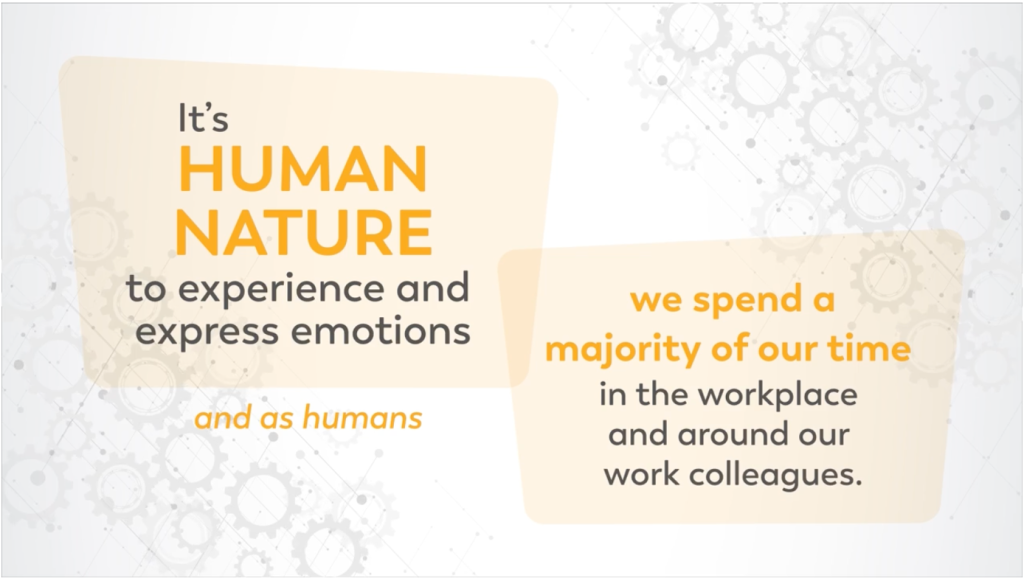Emotional Intelligence is the capacity to be aware of, control, and express one’s emotions, understand the emotions of others, and manage relationships successfully. While this may sound new or scary, this is a concept and skill set we all work through daily.
In this series of articles, we will break down the 4 key components of Emotional Intelligence:
- Self Awareness
- Self Management
- Social Awareness
- Relationship Management
We will also look at the benefits of Building Emotionally Intelligent Teams – including team-building exercises and practical tips for implementing these in your organization.
And finally, we’ll delve into The Importance of Open Feedback in building an emotionally intelligent team culture.
Let’s take a look at how Emotional Intelligence plays out in real life in a movie theatre environment.
Imagine yourself in the lobby on a busy opening night and you encounter this customer…

“Do you know how long I had to wait in line for tickets just now?! I can’t believe how inefficient that was! I don’t have time to be standing around all night. Now I missed half the previews!”
Now imagine this employee interaction…

Employee: (frustrated tone, arms crossed) I’m sick of being the only one cleaning around here while you and everyone else just hangs out and talks.
Manager: (demeaning tone that seems to disregard the other employee’s feeling) Honestly, it’s a job that needs to get done, and you’re the best person to do it, so…
Employee: (becoming more frustrated) ok… but why is it always me??
Manager: (getting defensive) Honestly, it’s not always you. You’re just the person that happens to do everything.
Employee: (visibly angry) ok… but I feel like it’s because you and everyone else are buddies, and hang out and talk while I’m left alone for the whole shift. I mean, I feel like we should rotate person to person who has to clean all of this.
Manager: (rolling eyes, condescending tone) Listen, I really don’t want to have this talk right now. So maybe we can just go back to work, and we can talk about it later.
Employee: (clearly unhappy and frustrated, walks away) ok….
We can understand how these employees are feeling by witnessing both the language being used AND the non-verbal cues such as body language and overall demeanor.
Observing and understanding how others are feeling is Social Awareness.
When talking about Relationship Management in this situation, our options may include:
- Barking commands or taking sides – “When something needs to get done, someone just needs to do it!”
- Asking clarifying questions to gain a better understanding – “Would you say that she tends to end up doing it a lot more often than others?
Emotional Intelligence is the whole process of Self Awareness + Self Management + Social Awareness + Relationship Management.
It’s human nature to experience and express emotions, and since we spend the majority of our time in the workplace and around our work colleagues, emotion will inevitably be a key factor in the success of any business.

Appreciation, listening, being present for our team members, and serving selflessly create a positive work culture that ultimately leads to engaged employees, satisfied customers, and increased profitability.
Blending this with Emotional Intelligence tells us that leaders need to know what their team is feeling, and what they think about their tasks and assignments, processes and goals. Equally as important, everyone needs to feel that they are being listened to.
When this process occurs, teams are likely to achieve empathy, trust, and a shared vision.
In study after study, we find that emotionally intelligent organizations are built from the top down. As a leader you have the power to model and encourage this openness for your team, This will not only benefit your team dynamics, but it will trickle down to overall guest experience.
Benefits of Emotional Intelligence
Benefits of Emotional Intelligence
But don’t just take our word for it!
In his book OPTIMAL, Daniel Goleman, an author and speaker who is a widely renowned expert in Emotional Intelligence, describes a couple of key studies that highlight the impact of emotional intelligence within organizations.
- A Meta Analysis conducted by a multi-University group, which pooled results from 12 studies across 2,764 participants, showed that:
- Higher employee performance is directly linked to leaders with higher Emotional Intelligence.
- Emotional Intelligence accounted for 25% of the performance advantage.
- A study of 2,600 employees from Dell, Microsoft, and IBM revealed that employees are more engaged and less likely to look elsewhere for a job when they work for an emotionally intelligent leader. Employees cited trust, better communication, and a sense of belonging as the reasons for their loyalty.
According to a survey by Deloitte, the number one leadership quality Gen Z looks for in a manager is patience and the second is empathy. It should be noted that Gen Z is currently 27% of the workforce and growing every year. With this in mind, we need to ensure our organizational leaders are developing the skills our newer generation workforce are seeking in employment.
In the context of team sports… a basketball team case study was conducted on toxic coaches where 693 players and 57 coaches were evaluated on the impact of abusive leadership and aggression. Not surprisingly, there was a direct link between a toxic leader to an increase in fouls per game and lowering scoring.
What these examples show is that higher Emotional Intelligence in leadership is predictive of greater job satisfaction, higher employee performance, higher employee engagement, and ultimately, higher profit and growth. And not surprisingly, toxic leadership resulted in poor outcomes for all of these metrics.
Stay tuned for the next part of this series as we delve deeper into the key components of Emotional Intelligence and how to build stronger, more effective teams in your organization.
The source material for this article comes from CineTRAIN’s 2-Day Master Class on Team Building. If you’re interested in bringing this dynamic training to your organization (virtually or in person), let’s talk!
